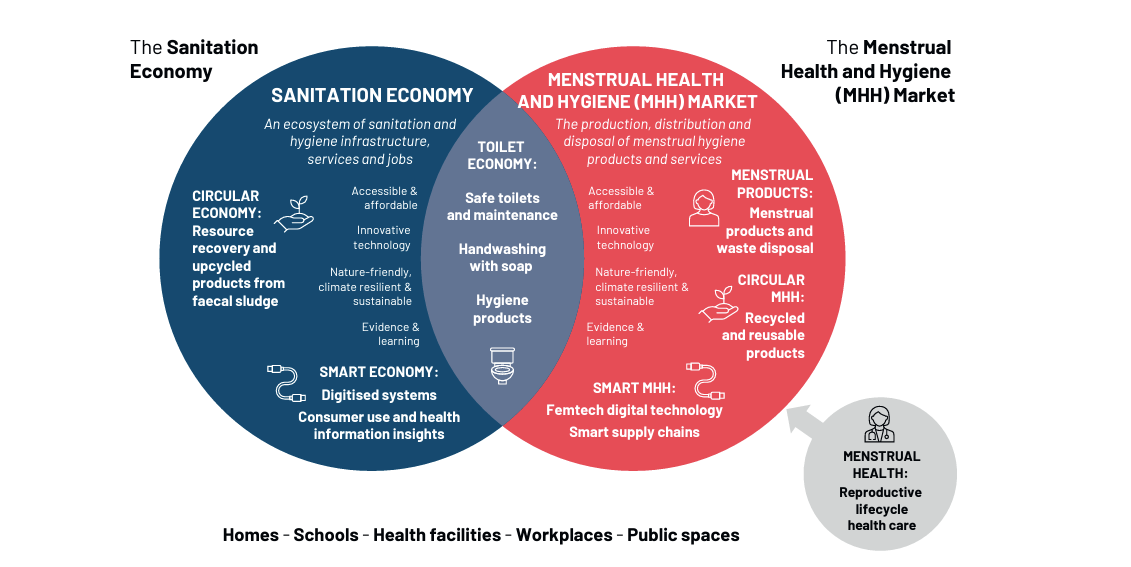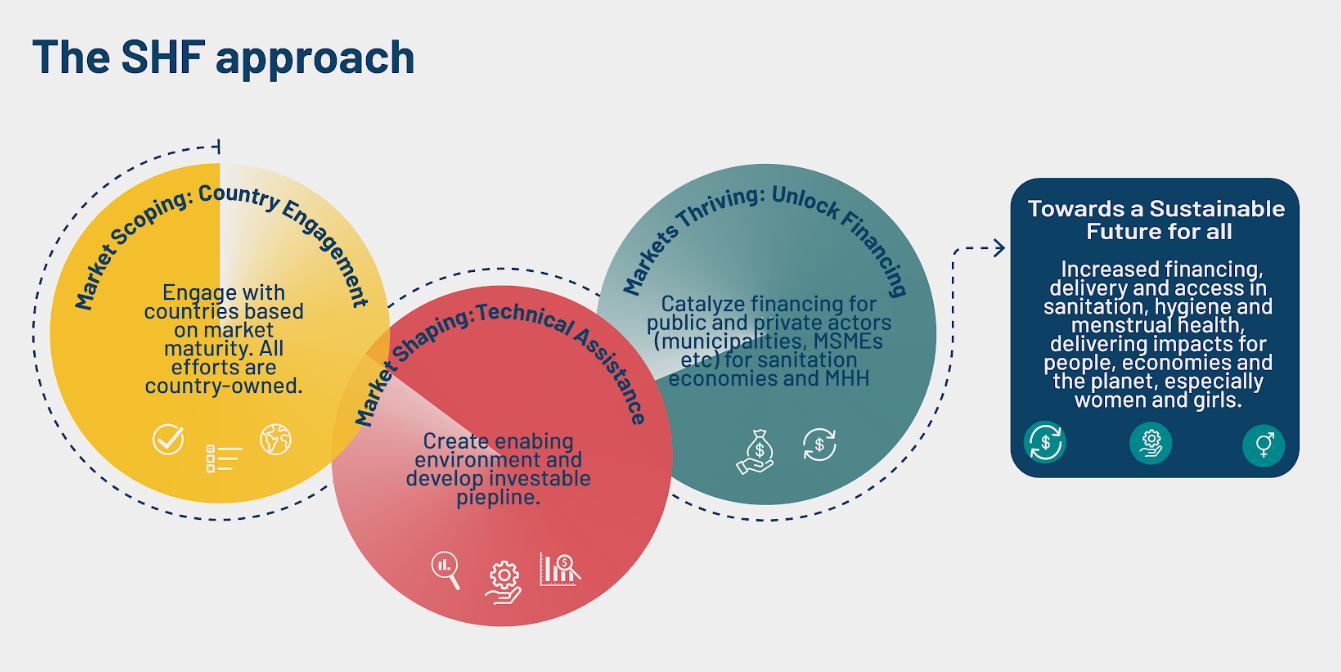The massive, untapped potential of sanitation economies and the menstrual health market
Investment in sanitation, hygiene and menstrual health has the potential to revolutionize how people understand, access and use sanitation services and menstrual health products in LMICs. The potential economic value is immense, with markets in bigger countries estimated to exceed billions of dollars.
The potential of sanitation economies
Sanitation economies in five African countries (Benin, Kenya, Nigeria, Sierra, Leone, Uganda) could be worth almost US$ 19 billion by 2030 once universal access is achieved, unlocking growth, economic returns and social impact, especially for women and girls. Nigeria alone has the potential to more than double its sanitation economy market from US$ 6.1 billion at present to US$ 12.5 billion by 2030.
Read more about Sanitation Economy estimates here.
Menstrual health markets: a growing investment opportunity
The total volume of the menstrual health and hygiene market is estimated to be US$ 28 billion today, with 38-61% of users who do not yet have access to menstrual products.
Across LMICs, 800 million women and girls are ready and willing to pay for reusable menstrual products. This market will only grow over the next few years: by 2035, the total number of people who menstruate will have grown by approximately 161 million in LMICs, from an estimated 1.72 billion today (RHSC, 2024).
SHF has commissioned Briefs on investments in menstrual health and hygiene offers promising insights on the potential impacts of investment in menstrual health on women’s education, health and economic well-being. These show for instance that the average return on investing $1 in menstrual health and hygiene is estimated at US $3 in Kenya.
Read more about SHF’s briefs on menstrual health and hygiene here.
The sanitation economy and menstrual health markets are closely interconnected

From intractable development challenge to sustainable investment opportunity
The Sanitation and Hygiene Fund (SHF) proposes a paradigm shift in how sanitation, hygiene and menstrual health are approached, and financed. Acknowledging the massive potential that these markets represent in LMICs, SHF works with countries and funders to assess market maturity, propose tailored packages of technical assistance, build the conditions so that local markets can thrive, and explore catalytic financing options to support these market.
By investing in sanitation economies and menstrual health markets, SHF aims to turn intractable development challenges into sustainable investment opportunities. Through a market-based approach, sanitation can indeed turn from a cost of US$200 to a net value of US$10 per person (source:TBC).
Investing in sanitation economies not only improves public health outcomes but also creates sustainable livelihoods for those involved in the sanitation market. From the construction and maintenance of sanitation infrastructure to waste management and recycling, there are numerous opportunities for entrepreneurship and innovation in this crucial sector.
Similarly, by investing in menstrual health markets, promoting women-led businesses and supporting local production of menstrual products, SHF is not only empowering women but also driving economic growth and creating much-needed opportunities for employment.
Working closely with countries and a range of public and private partners, SHF aims to make next generation sanitation a reality, while making period poverty a thing of the past. By viewing these challenges as investment opportunities rather than intractable problems, SHF strives to unlock the transformative power of economic growth and innovation.

